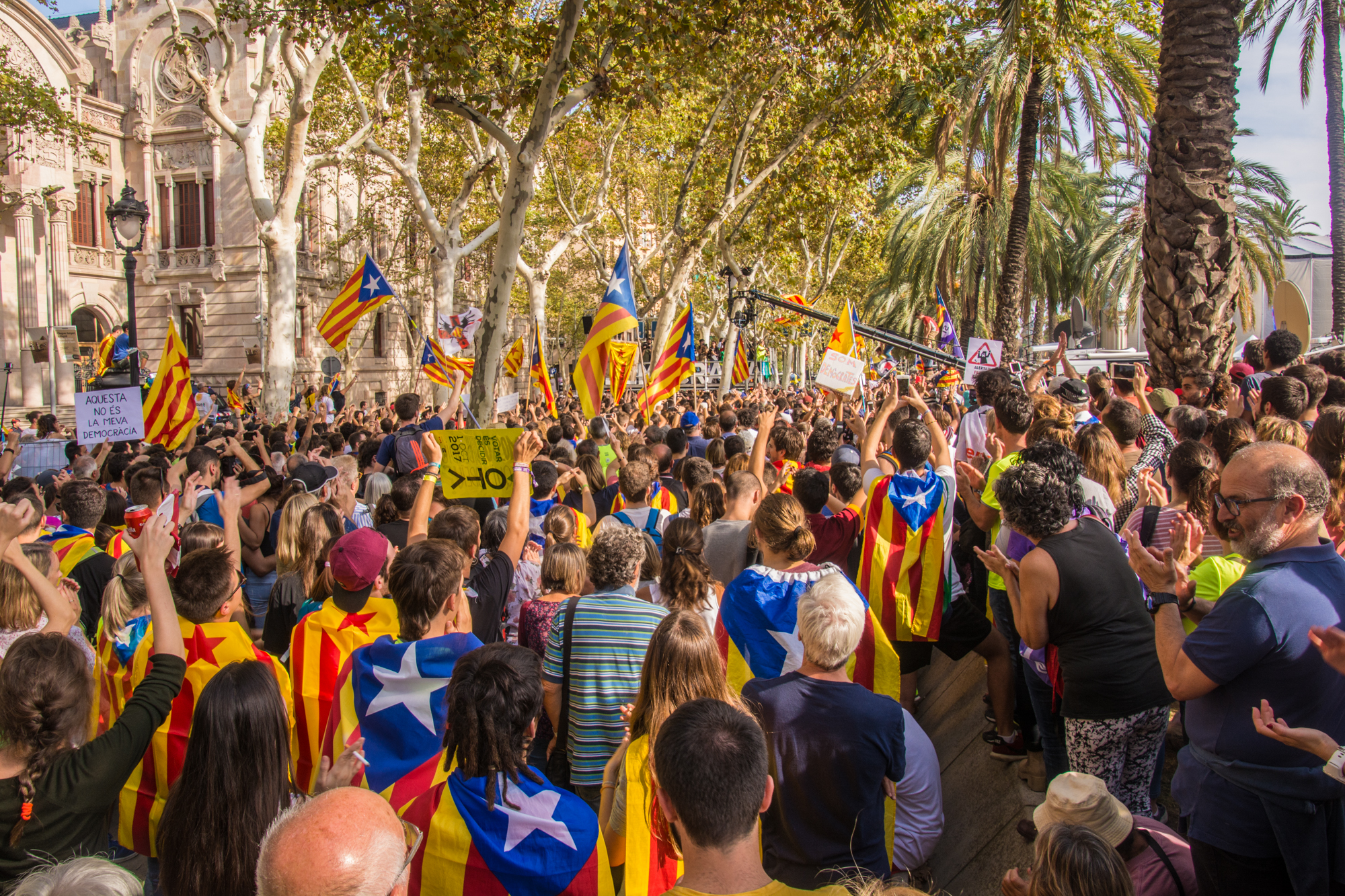
The referendum planned this Sunday in Catalonia isn’t actually illegal. Nor do the detentions of elected officials, the actions of the public prosecutor or the police deployments in Catalonia make it so. It’s just been suspended by the politicized and outdated Constitutional Court. What is of concern, though, is whether the referendum will be effective; whether it will resolve the country’s political conflict. Whether, despite the exceptional situation we’re in, it will be possible to declare a Catalan Republic if ‘Yes’ wins, and whether it will be internationally recognized.
Whatever happens, we’ll be making one of the most important decisions for our country without any of us – whether we support ‘Yes’ or ‘No’ or ‘It Depends’ – having been able to debate the issues. With the Catalan government taken over by the central state and police forces doing overtime on our streets, the debate has been all about whether or not the referendum will take place rather than the advantages and disadvantages of independence. Some had imagined this exciting moment in our history would be filled with arguments and ideas. With nuances. With contrasts. With data. With experts in economics, security, ecology, culture, sport and politics campaigning on behalf of different options. No. No public or private broadcaster is holding these kinds of debates.
The lack of a deep, complex and neutral debate, however, isn’t just due to the police deployment in Catalonia. We’ve known for a while that this would happen in the case of a unilateral referendum. A unilateral process mobilizes, above all, the already-convinced. The best ‘No’ campaign the People’s Party (PP), Ciudadanos and the Socialist Party have been able to muster has been to associate the vote with illegality, that is to say, with fear. ‘No’ supporters have no incentive to vote, nor do they have a voice in the campaign. Entering the playing field when the match has been declared void isn’t very attractive. ‘No’ supporters will win as long as they do anything but vote.
In the face of this, some will say: “OK, very well, and what should Independence supporters do? Wait for decades until Spain agrees to a binding referendum?” And they’re right. It’s legitimate that the independence movement, in the face of the Spanish government’s continual refusal to negotiate, has opted for a unilateral vote, particularly when it has a parliamentary majority. And many of us who disagree this is the best way forward still feel a duty to contribute while the chances of “doing things properly” are objectively so remote. Nevertheless, it’s logical to think the exceptional circumstances in which this referendum will be celebrated – if it is celebrated – will result in an uneven playing field, will make the result difficult to interpret and, above all, difficult to implement.
So, what should we do on Sunday, with this legitimate but suspended referendum and the Catalan police dancing sardanes around our polling stations? The answer, for me, is clear: we must take to the streets, ballot papers in hand. And try to vote. Try to vote, whether we vote ‘Yes’, or ‘No’ or ‘Null’. We must do so despite their attempts to make us afraid, even if it means dodging the police. Participating on 1 October is the best way we can exercise our sovereignty as a people. And it may also be the best way to put Rajoy’s government back where it belongs: in opposition. We must take to the streets and protest en masse against this wave of state repression. Without a doubt, the authoritarian strategy of the PP government has achieved what the independence movement had failed to do in recent months: grow its grassroots support. The student, union and neighbourhood movements have built a broad and diverse democratic coalition ready to turn 1 October into a wholesale rewriting of the post-Franco regime. The debate is no longer just about independence. The collective dignity of a combative people is at stake, as are the rights and freedoms that have been violated in recent days. In this context, high participation and ramifications across Spain look likely.
Many of us will take to the streets with the conviction that 1 October is an opportunity, not just for Catalonia, but also for all of the nations that make up Spain. Many of us who are critical of ‘magical independentism’, and distrust the recent conversion of the neoliberal right to the independence movement, understand that 1 October could become a lever for constitutional change across Spain. Many of us believe the current model makes a relationship between equals, between the nations of Spain and the central government, impossible. But this doesn’t mean breaking the ties that bind us with Spanish citizens with whom we share history, struggles and powerful shared adversaries.
And many of us will also take to the streets to call for independence from intolerance. The intolerance of anachronistic Spanish nationalists who chant their support for Civil Guard police being sent to Catalonia armed to the teeth. But also the intolerance of some in the independence movement who label people as good or bad Catalans according to their level of patriotism. Because such narrow-mindedness provides no basis for a new Republic. Many of us are concerned that Spanish nationalism and the most sectarian elements of the independence movement (which betray its popular roots), have things in common. Strangely enough, the image of a monolithic Spain is far more convenient to both extremes than the fraternal Spain that has been demonstrating in favour of pluri-nationality and the right to self-determination.
Many of us want to declare independence from this binary world, with its tendency to groupthink and its allergy to dialogue and nuance. To close one’s eyes to expressions of solidarity is to close one’s eyes to the best version of ourselves and to renounce the chance to build the alliances we will need from 2 October to continue dreaming.
This piece originally appeared in Público. Translated by Kate Shea Baird.